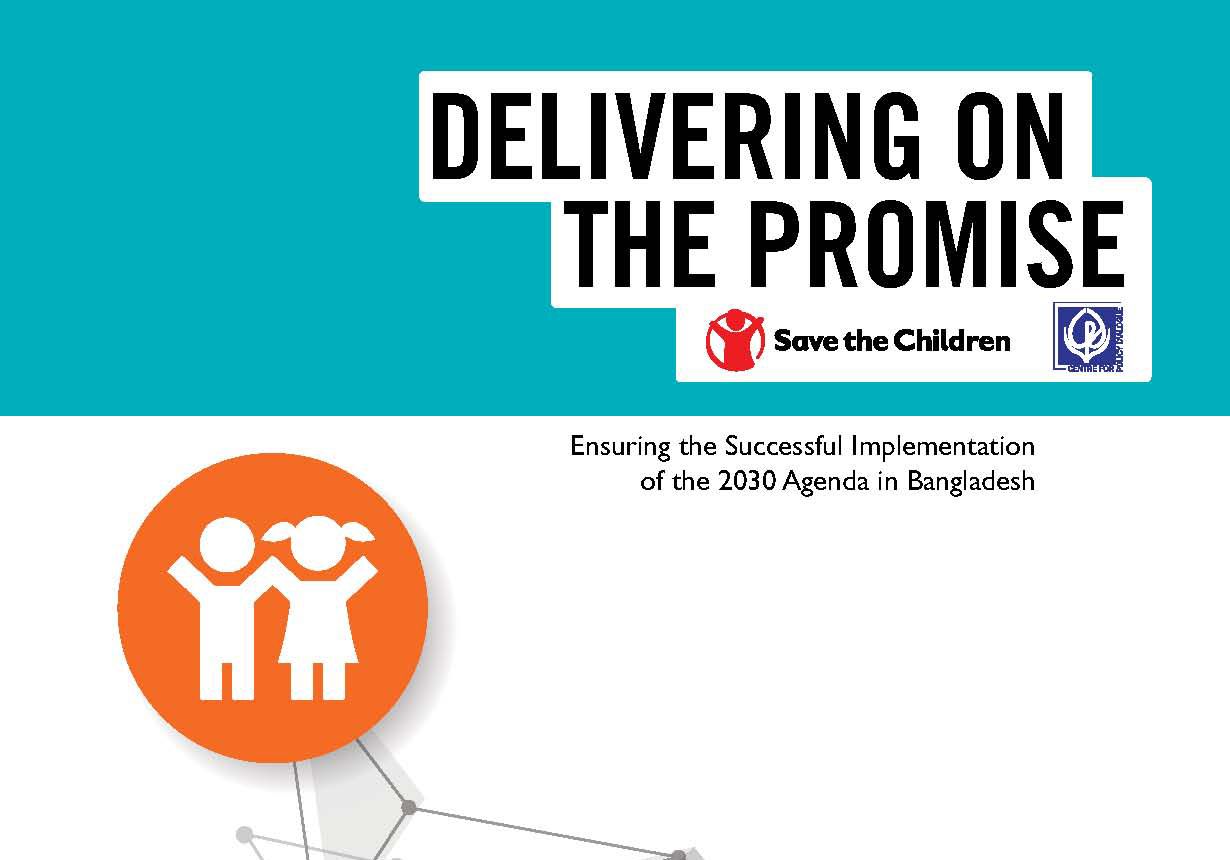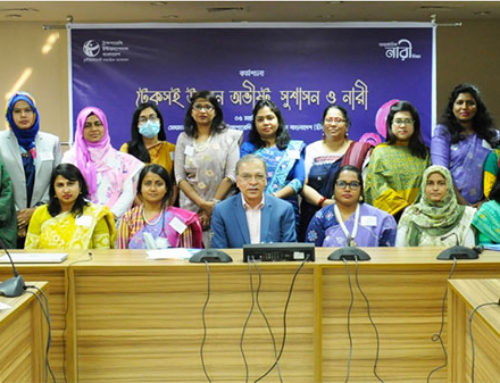 CPD, in partnership with the Save the Children in Bangladesh, has carried out a study titled Delivering on the Promise: Ensuring the Successful Implementation of the 2030 Agenda in Bangladesh. The report on the study has been published recently which is authored by Dr Debapriya Bhattacharya, Distinguished Fellow, Mr Towfiqul Islam Khan, Research Fellow and Mr Mostafa Amir Sabbih, Research Associate of CPD.
CPD, in partnership with the Save the Children in Bangladesh, has carried out a study titled Delivering on the Promise: Ensuring the Successful Implementation of the 2030 Agenda in Bangladesh. The report on the study has been published recently which is authored by Dr Debapriya Bhattacharya, Distinguished Fellow, Mr Towfiqul Islam Khan, Research Fellow and Mr Mostafa Amir Sabbih, Research Associate of CPD.
Executive Summary of the Study
At the 70th session of the United Nations General Assembly on 25 September 2015, member states adopted the 2030 Agenda for Sustainable Development. The agenda, which introduced 17 Sustainable Development Goals (SDGs) and 169 targets, reflects an ambitious, transformative vision for global development. Unlike the Millennium Development Goals (MDGs), the SDGs were formulated to be universal. The inclusion of both developing and developed countries merits appreciation, though also implies that SDG targets need to be relevant within very different country contexts. The experience of the MDGs taught us that the achievement of some SDG targets will require comparatively greater efforts in Bangladesh.
The present study discusses the SDG implementation challenges in Bangladesh. It aspires to engage Government of Bangladesh (GoB) officials and other key stakeholders in the country through raising awareness, highlighting key challenges for national-level implementation and prompting action to ensure that they are adequately prepared to implement the SDGs. With a view to identify implementation challenges in Bangladesh, the study analyses available secondary information relating to implementation of the SDGs at the country level. SDG target alignment with the country’s Seventh Five Year Plan, sectoral plans and policies is assessed by way of a detailed review of the literature and national- and global-level policy documents. Secondary data on the government budget and financing are then analysed to understand the channelling of funds to SDG areas. Finally, a data mapping exercise, which used the recently adopted list of 230 indicators proposed by the United Nations Statistical Commission, is conducted to discern the data gaps and needs relating to the monitoring of progress on the SDGs in Bangladesh. The perspectives of government officials, civil society experts, think tank members, private sector representatives, and representatives of the national statistical office and development partners inform this exercise. This study shows that there are several trends that may affect the GoB’s ability to achieve the SDGs. There were a number of MDGs left unattained. Further, the progress made in different MDG areas was not uniform for everyone. There are growing gender, group-based and geographical inequalities that alienate large segments of the population.
Authors: Debapriya Bhattacharya, Towfiqul Islam Khan, Mostafa Amir Sabbih
Published by: Save the Children in Bangladesh




